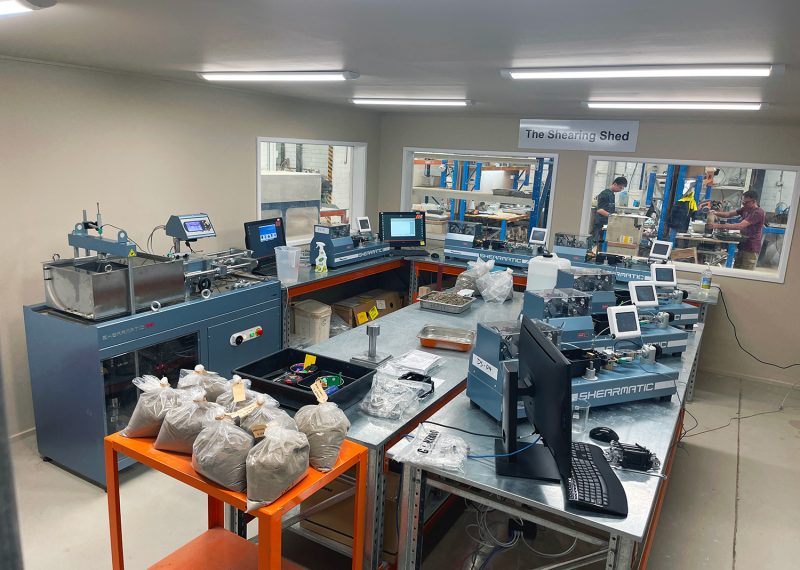ASTM D 5607 Direct Shear Strength
Test Method Q181C: Effective angle of internal friction
We use the latest fully automated Soil & Rock Direct Shear Machines that offer a far more accurate way to obtain reliable results without any need for manual intervention using our 300mm and 100mm machines. The Direct Shear test is conducted in geotechnical engineering practice to determine the shear strength (peak, residual or ultimate) of soil, aggregate, or rock materials.
In many engineering problems such as the design of foundations, retaining walls, cuttings, embankments, excavations, tunnels, shafts, sheet piling, the value of the angle of internal friction and cohesion of the soil & rock involved are required for the design. The direct shear test is used to predict these parameters. Samples may be soil in-situ, or soil remolded specimens, intact rock, or rock discontinuities (joints, faults, fractures, bedding planes, shear zones, etc). Discontinuities may be open, partially or completely healed or filled by clay.
Direct Shear Interface Testing
A potential weak zone (either natural or manufactured) consists of 2 or more interfaces that need to be assessed individually and or collectively since the interface with minimum shear strength will dominate the overall behavior.
Rock – Concrete – Soil – Asphalt – Clay – Aggregate
Innovation and customised testing is our strength, talk to us regarding the interpretation of cohesion (or adhesion) and friction angle in direct shear interface testing on many different material types.
We give you the right information to make the right decisions






